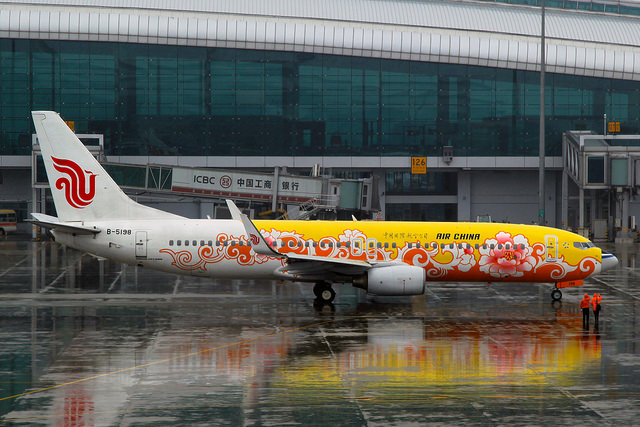A Tweet About a Chinese Magazine Reveals the Truth About Global Racism

By:
A Chinese airline's "safety tip" is causing controversy and backlash. Air China, the state-run airline of the country, gave this safety tip to passengers traveling to London in its in-flight magazine: avoid neighborhoods with brown people.
 Flickr/byeangel - flic.kr
Flickr/byeangel - flic.kr
The in-flight magazine Wings of China had the racially insensitive warning in its "Tips from Air China" section, according to The New York Times.
“Safety: London is generally a safe place to travel, however precautions are needed when entering areas mainly populated by Indians, Pakistanis and black people. We advise tourists not to go out alone at night, and females always to be accompanied by another person when travelling.”
Haze Fan, a producer from CNBC in Beijing brought attention to the racist warning when she tweeted a picture of the magazine. She also tweeted at the Mayor of London Sadiq Khan for his opinion. Khan was born in England and is of Pakistani descent.
People on Twitter were shocked at the racist message in the in-flight magazine and commented on the global nature of racism.
Air China issued an apology and removed the in-flight magazine with the offensive passage, according to The New York Times. The magazine Wings of China also issued an apology and chalked up the racist language to an editing mistake.
This isn't the first time a Chinese company has published something racially insensitive toward dark-skinned minorities.
In May, Qiaobi, a Chinese laundry detergent company, received backlash on social media for an advertisement that featured an Asian woman "cleaning" a black man in an washer machine, turning him into an Asian man.
The woman literally "washes" the black off of the man. The ad caught the world's attention after Chris Powell, an American black musician living in China, posted it on his Facebook page. There are more than one billion people living in China but only about 600,000 of them are foreigners and even less than are black, according to BBC News.
However some people say that racist mistakes like these cannot be attributed to simple ignorance because of a lack of contact with black people. Black British journalist Nicole Bonnah lives in Beijing and works for China Central TV News. She and wrote about the detergent ad on her blog "Black Lives in China."
"Racial prejudice in China, as a result of colonial and postcolonial 'Imaginaries' of racial superiority, doesn’t just look like racism – it is. Just like imperialist views of the East and Africa as primitive nations can be added to the many “global imaginaries” people contend with – naivety, and being 'confused' as a result of this, would and does not stand as a legitimate rationale to maintain sentiments of racial prejudice or superiority over another."
Racism in the U.S. has a high-profile, but there is an established global history of racism against dark-skinned people. Here are just a few:
The United Kingdom.
Despite the fact that the United Kingdom has an increasingly diverse population, almost 30 percent of British people in 2013 reported that they had feelings of racial prejudice, according to the Guardian.
Also the U.S. wasn't the only country involved in the Trans-Atlantic Slave Trade. Several other European countries bought and sold slaves including Great Britain. British slave owners got rich during the slave trade and when the country ended the trade in 1833 it gave slave owners one of the largest bailouts in British history to compensate them for the loss of the human property, according to the Guardian.
South Africa and the Netherlands.
After a long history of Black Africans being colonized and ruled by the Dutch, modern South Africa moved into a period of legal racial segregation implemented by the white-ruled government called Apartheid, which didn't end until 1994. For comparison, institutionalized U.S. segregation ended with the Civil Rights Act of 1964.
Last week, students protested at Pretoria Girls High School, after teachers told black students that they needed to straighten their hair and could not wear braids or African hairstyles.
“They go around posting signs about the ethos of equality for all the girls at the school, but that is not true,” said one 15-year-old student to The Washington Post. “It feels like they don’t want to accept the fact that we’re African.”
India.
India is a country with darker skinned people by British standards, it's former colonizer, but Indian society has a history of favoring lighter skinned people, according to the Guardian.
In May an African man was beaten to death in New Delhi because he was black, according to the Washington Post.
